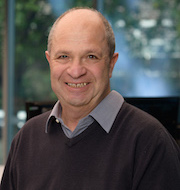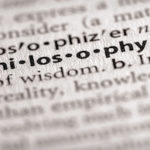
The Philosophy Zone: Series 2
Philosophical Dimensions of Everyday Challenges in Psychotherapy
A 6-part series with Dr Steven Segal offered nationally via zoom
Thursday evenings monthly from July 6 to November 30 2023
The word philosophy derives from Ancient Greek and means “the love of wisdom”. The study of philosophy asks life’s fundamental questions to help us better understand our place in the universe as well as our relationships and responsibilities to each other. It is a cornerstone of CEP’s reason for being. We had an excellent response to our first philosophical series in 2022 and we are delighted to announce a 2nd series, once again to be brought to you by our favourite philosopher, Dr Steven Segal.
Philosophical dimensions of everyday challenges in psychotherapy
Overview
Psychotherapy is situated within a socio-cultural perspective. To what extent can an understanding and use of frames drawn from a socio-cultural-historical perspective deepen our understanding of and our skills in psychotherapy? Some examples of themes that psychotherapy shares with a socio-cultural-historical perspective include:
- the culture of narcissism
- the age of individualism
- the manifestation of ‘existential threats’ in the form of anxiety about the stranger (the other)
- the place of care in technology and bureaucracy
- returns to religion
- a fundamentalist approach to the politics of nationalism
- fragmentation of self and the overcoming of fragmentation
- the politics of anxiety and uncertainty, despair and playfulness at the end of all grand visions
Each of these themes will be explored from the perspectives of different philosophers, particularly those whose work is more focused on the day-to-day challenges of human existence rather than what may be termed ‘ivory tower’ issues.
The series will be based on a Heideggerian reading of each of the philosophers and of the socio-cultural perspectives in which we are immersed. Heidegger does not use the descriptor socio-cultural but he does write about our average everyday conventions for existence. These average everyday conventions form our socio-cultural-historical and political context. They are for the most part in the background of our awareness. The views of each of the philosophers we will consider in this series will be used in a “Heideggerian” way – that is existential-hermeneutic phenomenology, focussing on a different dimension of the socio-cultural (average every day) perspectives that are meaningful in the practice of psychotherapy.
Essentially, what Steven aims for you to gain from this series is:
- A set of frameworks to deepen your practice
- An attitude towards further developing your therapeutic skills
- Understanding of the philosophical dimensions of care and concern
- Greater awareness around the process of overcoming that clients and therapists alike undergo in the therapeutic experience
- A connection between the individual dimensions of psychotherapy and the socio-cultural contexts of self-development/ self-actualisation.
- An appreciation of emotional challenges from a socio-cultural perspective

SARTRE: An Existential Understanding of Narcissism
Thursday 6 July 2022 – 6.30pm to 8.30pm AEST
Being an individual is a challenge and we are often a burden to ourselves. Sartre sees this challenge and burden as part of the human condition. Many thinkers have extolled the virtue of freedom. Sartre sees freedom as a challenge on the road to becoming an individual because we are free and responsible for creating ourselves. Each of us is responsible for our own existence. We cannot, Sartre maintains, rely on any other or code of ethics in becoming ourselves. We are answerable for ourselves and need to pull ourselves up by our own bootstraps. Just how we do this from a Sartrian perspective is the theme explored in this session. Sartre provides us, as we will see, with an existential understanding of narcissism.

HANNAH ARENDT & PATRICIA BENNER: The Bureaucratic Mentality and Empathy
Thursday 10 August:6.30pm to 8.30pm AEST
The importance of care in the Western philosophical tradition dates back to Plato and Socrates. Care was seen as the basis of wisdom and of knowledge of the self. Yet there are a number of indications today that the phenomenon of care is taken for granted. Hannah Arendt’s book the The Banality of Evil points to the role that the absence of care plays in the evil of Adolf Eichmann. Is the absence of care a feature of our bureaucratised ways of being-in-the-world? Patricia Benner’s work provides a framework in which to understand and develop a caring attunement in a technological world.
 HEIDEGGER: Existential Threats
HEIDEGGER: Existential Threats Thursday 21 September: 6.30pm to 8.30pm AEST
In the wake of events such as Brexit and mass migration provoking felt threats to the sovereignty of nations, there is much talk about existential threats. This descriptor has become a kind of moral principle used to justify both defensive and aggressive responses. To be in an existential threat somehow means that you are on the right side of right and do not need to justify yourself any further. We need to ask, what is an existential threat and what can we do about it? Is war the only response to an existential threat or are there other ways of responding?

NIETZSCHE & STOICISM: Different Approaches to Managing Emotions
Thursday 12 October: 6.30pm to 8.30pm AEDT
For Stoic philosophers such as Epictetus and for existential philosophers such as Nietzsche we are masters of our attitudes. For them, it is not only the event that counts but one’s attitude towards it is important in the context of being a self. However, the Stoics and Nietzsche differ in their understanding of our relationship to our attitudes. The Stoics practice self-denial in managing emotions and attitudes, believing that emotions are overwhelming. Nietzsche, who also understands the power of emotions, subscribes to the notion of overcoming in the context of becoming a person. In this session, the lived experience of Nelson Mandela will be used as an example to illustrate both the Stoic and Nietzschean process of overcoming.
 KIERKEGAARD: Real-Time Development of Complex Skills
KIERKEGAARD: Real-Time Development of Complex Skills
Thursday 9 November: 6.30pm to 8.30pm AEDT
The way in which skills are conceptualised and taught is often in terms of a step-by-step linear process. The image of climbing a ladder comes to mind. However, the lived experience of the practice of developing skills is quite different. Think of learning how to drive a car. It is not a step-by-step process. Rather, the novice driver is challenged to gradually co-ordinate several actions simultaneously: the clutch, the gears, the speed, the breaks, the steering wheel and so on. Likewise, a novice in any field is called upon to leap into the complexity of skill development. Kierkegaard’s existential philosophy provides a framework in which to understand the anxiety, excitement and uncertainty of the faith in leaping into in-habiting skills.
 POSTMODERNITY: Fragmentation and Fundamentalism
POSTMODERNITY: Fragmentation and Fundamentalism
Thursday 30 November: 6.30pm to 8.30pm AEDT
For many writers Postmodernity signals the end of all grand narratives. The grand visions of Communism, Capitalism and Enlightenment have lost their compelling power. We are living in what one author calls ‘the ruins of the university’ where knowledge is just another commodity to be bought and sold and if it cannot be commercialised it has lost its use. One of the dominant responses to postmodern fragmentation is a fundamentalist reading of and adherence to ancient texts that offer a promise of revival of ancient traditions. But there are also some contemporary forms of fundamentalism; for example, the idea that only that which can be measured exists. So what are some alternative responses to postmodern fragmentation?
Presenter: Dr Steven Segal
Steven Segal PhD (Wits), MA (Wits), BA (Wits), BA Honours (RAU), BA Honours (Wits)
Dr Steven Segal is a registered and practising psychologist. He is also recognised internationally for his work in philosophical counselling. He was an Associate Professor of the Macquarie Graduate School of Management at Macquarie University where he lectured, conducted research and developed an approach to executive coaching and psychotherapy called “Existential Executive Coaching.” He is the author of two books which look at the role of existential psychology and philosophy in leadership and management. He is the co-editor of a third book called Face to Face with Management Practice. He has published over thirty peer reviewed journal articles. Steven’s approach to psychology, therapy and teaching emerged not only out of formal studies but out of his own experience of working through mental health issues as a client and as a therapist. Anxiety overwhelmed and bewildered him in his early adult years. The more he worked through his lived experience of anxiety, the more anxiety became a source of meaning, purpose and direction in life. Steven sums up his experience with a quote from the existential philosopher, Soren Kierkegaard, who said that “Whoever is educated by anxiety is educated by possibility.” See his website here.
The Details:
Date: Thursday evenings – JULY 6 to NOV 30 2023 – 6.30pm to 8.30 pm AEST then AEDT from Oct (see individual dates above)
Join the session: 6.15p.m to iron out any sound/vision issues
Session time: 2 hours (with breaks accommodated)
Location: online via zoom (registrants will receive an invitation to participate and all the details they require in advance of the date)
Cost: $150 per session (flat rate)
CPD Hours: 2 per session
Package of 6 sessions $600 (flat rate)
CPD Hours: 12
note to registrants:
if you have registered for other CEP online workshops in 2023, the registration form will show checked boxes for those. Just check the box for this registration – you do not need to uncheck the others.